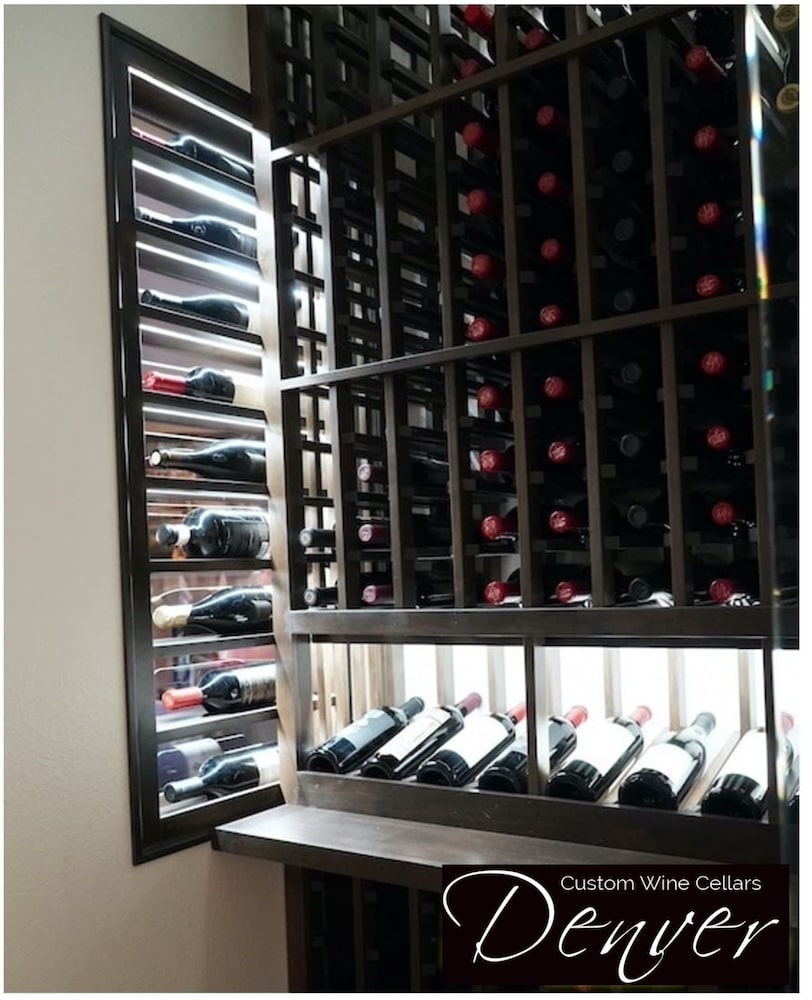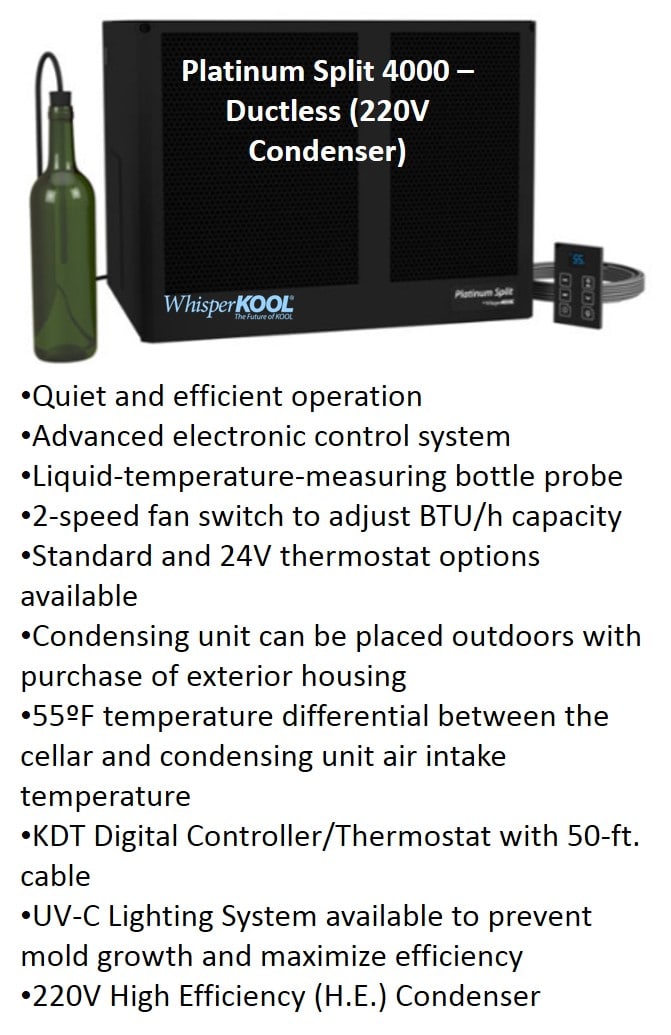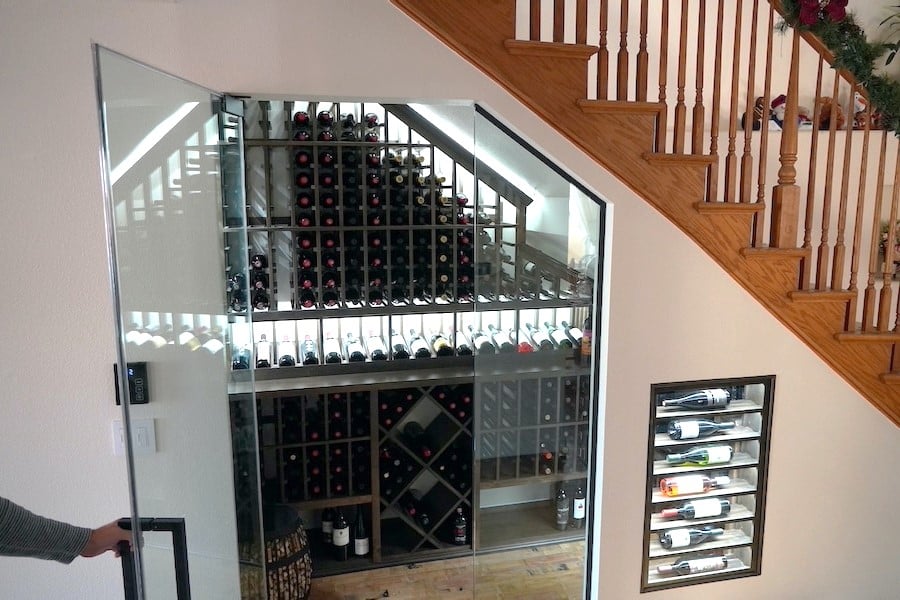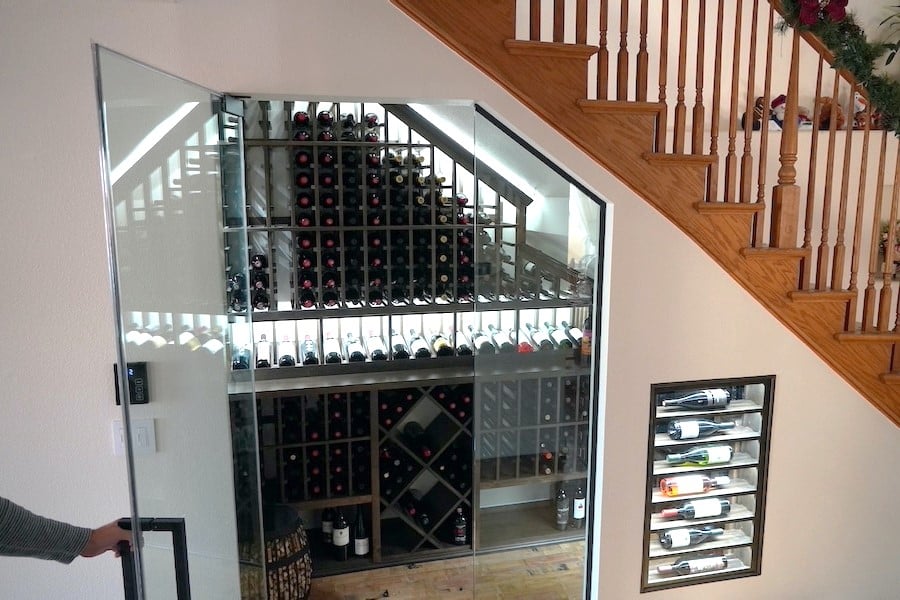
Refrigerated Wine Cellars: Under the Stairs Project
Understanding the role of refrigerated wine cellars in proper wine storage is crucial to ensuring your wines are in their best condition before they are consumed. Storing your wines on the kitchen shelves, cabinets, or refrigerator will deteriorate the wines. Read on to learn about proper wine cellar refrigeration and some of the projects completed by Coastal Custom Wine Cellars, a team of trusted builders and HVAC specialists.
Refrigerated Wine Cellars: Proper Construction and Benefits
Refrigerated wine cellars built by experts are safe storage places for wines waiting to be poured into wine glasses. They can only function efficiently if technical requirements are met. Therefore experienced builders and HVAC specialists should go hand in hand to create wine rooms with stable conditions.
In Denver, Coastal Custom Wine Cellars is a team of top-notch installers of climate-controlled wine cellars and HVAC experts who has a thorough understanding of the proper construction of wine storage spaces.
The Key Role of Refrigerated Wine Cellars in Proper Wine Preservation
Wine is a delicate beverage with special storage requirements to preserve its quality for many years before it is consumed. It should be stored in a place with the ideal conditions.
The ideal temperature is between 55-65 degrees Fahrenheit. When exposed to too much heat, the wine will undergo accelerated aging and deteriorate quickly. On the other hand, when the wine is stored at a very low temperature, it will expand, put pressure on the bottle and the cork. The bottle may crack, or the cork will pop due to the freezing of the wine. When one of these things happen, the wine will be oxidized and have an unpleasant taste and aroma.
Humidity levels should also be regulated. Your wine cellar should be able to achieve between 60%-70% humidity level. High humidity levels will cause condensation build-up, which can trigger mold growth on the cork, walls, ceiling, and even on the wine labels. Moldy cork can contaminate and spoil the wine.
Refrigerated wine cellars are the answer to these wine storage issues. How should they be built?
How Expert Builders Build Refrigerated Wine Cellars
Master builders know the standard procedures for building refrigerated wine cellars. Before installing the wine racks, wine cooling system, flooring, and lighting, Coastal Custom Wine Cellars prepare the wine room by framing, installing the electrical wiring, plumbing, and insulating the walls and ceiling.
Creating an Airtight Seal and Its Importance in Building Safe Refrigerated Wine Cellars
Creating an airtight seal is a crucial step in wine cellar construction. Steve and his team always makes a thorough assessment of the client’s needs to help them determine the required insulation value considering the location of the wine cellar and the amount of glass used for the walls and doors.
The correct insulation will help stabilize the conditions inside the wine room. A lack or poor insulation will cause extreme changes in the temperature and humidity levels, which can result in wine storage issues like mold growth and spoiled wines.
The closed-cell polyurethane spray foam insulation is widely used by builders and contractors because of the many benefits it offers. It is an economical option because it can act both as an insulator and vapor barrier. You do not have to spend for a separate barrier. The vapor barrier will separate the warm environment from the colder environment inside the refrigerated wine cellars. Another advantage of closed-cell spray foam insulation is its efficiency and reliability. It can fill in even the tiniest gaps between the studs.
Installing the Correct Wine Cellar Refrigeration System
Choosing the most suitable wine cooling unit can be a challenging task without the help of an HVAC specialist. Heat load calculation should be performed to determine the number of BTUs required for a wine cellar. This process will help with the correct sizing of the wine cellar refrigeration system.
A wine cooling unit that is too small for the size of your wine room will deteriorate wine quickly, while a refrigeration system that is too big will cause the wine to freeze, the bottle to crack, and the cork to expand. When these happen, there will be wine oxidation, which gives the wine an unpleasant aroma and taste.
At Coastal Custom Wine Cellars, their HVAC specialists will ensure that your wine cooling system is of the right size and installed correctly according to the requirements. They offer commercial-grade wine cellar refrigeration units from top-notch suppliers like WhisperKOOL, US Cellar Systems, Wine Guardian, and CellarPro.
Installing High-Grade Wine Cellar Doors
Wine cellar doors should also be insulated to help seal climate-controlled wine rooms. The Coastal team installs sealing components, including weather stripping, to prevent air leaks to and from the wine cellar.
For wooden doors, they use exterior-grade wood to give doors high resistance to warping in highly humid conditions in refrigerated home wine cellars. For glass doors, they use thermally insulated glass panels to prevent condensation from building up around the door.
One of the Stylish Refrigerated Wine Cellars Built by Experts in Denver
Coastal Custom Wine Cellars builds refrigerated wine cellars with form and function in mind. One of their goals is to help homeowners enjoy wine collecting for many years. Their team is composed of knowledgeable and experienced designers, installers, and HVAC technicians.
See below one of the home wine cellars they have built using high-grade and stylish components.
Home Wine Cellar Under Stairs
With many designs available, it is best to consult with a specialist who will transform your space into a functional wine storage and display area. In one of their projects, Coastal Custom Wine Cellars installed a modern wine cellar under the stairs.
They made sure the correct insulation on the walls and ceiling was installed. The door and wine room glass wall are thermally-insulated to help the wine cooling unit create the ideal wine storage conditions. The glass panels used were single-paned with ¾-in thickness. The frameless glass door allows the beautiful wine display to be viewed without any obstructions from the outside.
After calculating the heat load, they decided a Platinum Split-System 400 wine cooling system from WhisperKOOL was the best option. The temperature and humidity in the wine cellar are regulated by. It offers a virtually quiet operation. Steve and his team installed LED lighting to prevent harmful emission of UV rays and save the wines from spoilage.
Work with Experts in Building Refrigerated Wine Cellars
Working with experienced builders of refrigerated wine cellars will ensure your wine storage facility is constructed correctly with high-grade components. At Custom Wine Cellars Denver, we collaborate with reliable wine cellar refrigeration companies like Coastal Custom Wine Cellars.
If you have in under-stairs wine storage ideas, please call us at +1 (303) 872 – 7858 , and we will bring them to life!
View the different brands of wine cellar refrigeration systems we offer.



